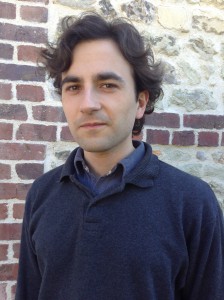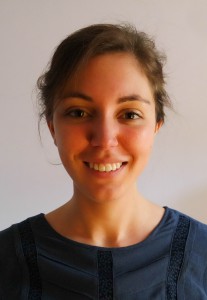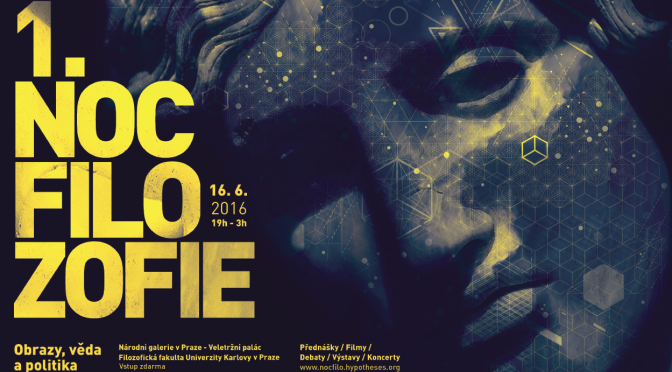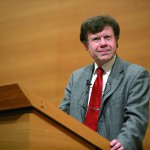Paul-Antoine Météier
 Licence d’histoire et de tchèque à l’université Paris-Sorbonne (Paris-IV) / master Sciences-Po-IEP de Paris
Licence d’histoire et de tchèque à l’université Paris-Sorbonne (Paris-IV) / master Sciences-Po-IEP de Paris
Sujet de mémoire : Le transfert de la culture courtoise en Bohême, XIIe-XVe siècles
Période de stage : juin-juillet 2016
Stage administratif
Marion Clain
 Master Etudes Européennes et Internationales, Politiques et Sociétés, l’Europe et le Monde à l’Université de Nantes, France. Licence en Droit et Sciences Politiques (Université de Nantes)
Master Etudes Européennes et Internationales, Politiques et Sociétés, l’Europe et le Monde à l’Université de Nantes, France. Licence en Droit et Sciences Politiques (Université de Nantes)
Sujet de mémoire : L’islamophobie en Europe Centrale/République Tchèque
Période de stage: mai-juin 2016
Stage administratif
Pierre Neau
 Master Genre, politique et sexualité à l’EHESS, Paris, France.
Master Genre, politique et sexualité à l’EHESS, Paris, France.
Licence en Philosophie et Sociologie ainsi qu’en Information et Communication (Culture et médias) de L’université Lille 3, France
Domaines de recherche : Sociologie, études de genre, homosexualité-es, masculinité-es, études post-coloniales et post-communistes
Sujet de mémoire : « Expatriation, masculinités et homosexualités : Prague, un paradis gai nommé désir ? »
Période de stage : avril 2016
Stage de recherche
Ludovic Schlosser
 Master TEMA EHESS / FF UK.
Master TEMA EHESS / FF UK.
Diplômé en histoire et en études slaves de l’Université d’Aix-Marseille et de l’Université de Tübingen (Allemagne)
Domaine de recherche : Histoire sociale et culturelle du monde germanique, de l’Europe médiane, histoire de la vie quotidienne
Sujet de mémoire : Industrie touristique et production ethnographique. A propos de leurs interrelations changeantes et de leurs retentissements sur les modèles d’identité locale dans les Monts des Géants (1880-1918)
Période de stage : mars-avril 2016
Stage de recherche.
Marion Eschard
 Master de Lettres modernes à Paris-Sorbonne (Paris IV).
Master de Lettres modernes à Paris-Sorbonne (Paris IV).
Diplômée d’Études centre-européennes (Lettres, langues et civilisations étrangères), spécialisation langues tchèque et hongroise à Paris-Sorbonne (Paris IV) et de Lettres modernes à l’Université de Nantes
Domaine de recherche : Histoire et littérature. Histoire culturelle, politique et sociale. Idiotie, humour et dissidence
Sujet de mémoire : La Bêtise intelligente dans les écrits journalistiques d’Alfred Jarry (1873-1907) et de Jaroslav Hašek (1883-1923)
Période de stage : février-avril 2016
Stage de recherche et stage en bibliothèque
Gwendal Piégais
Master à l’Université de Louvain.
Diplômé en philosophie et en histoire de l’Université de Bretagne Occidentale (Brest) et de l’Université Catholique de Louvain (Louvain-la-Neuve)
Domaines de recherche : Histoire militaire et sociale de la Première Guerre mondiale
Sujet de thèse de doctorat envisagé : L’usage et l’interrogation des déserteurs allemands et austro-hongrois par les armées de l’Entente pendant la Première Guerre mondiale
Période de stage : octobre 2015-janvier 2016
Stage de recherche
Xavier De Poulpiquet de Brescanvel
Master TE MA EHESS / FF UK.
MA EHESS / FF UK.
Diplômé en histoire et en philosophie à l’Université de Rennes
Domaines de recherche : Histoire moderne, histoire culturelle des intellectuels
Sujet de mémoire : Analyse du récit de De la Crequinière : Conformité des coutumes des Indiens orientaux avec celles des Juifs et autres peuples de l’Antiquité (XVIIe-XVIIIe siècles)
Période de stage : octobre-décembre 2015
Stage de recherche et stage administratif (modernisation et entretien du carnet de recherche du CEFRES)
Alicia Bouchot
Master T EMA EHESS / FF UK.
EMA EHESS / FF UK.
Diplômée en histoire et en géographie de l’Université Jean-Jaurès de Toulouse
Domaines de recherche : Etudes urbaines, études des minorités, histoire de l’immigration
Sujet de mémoire : « Quartier ethnique » ou « lieu de mixité » : analyse d’un quartier toulousain de 1969 à 2009
Période de stage : octobre 2015
Stage en bibliothèque



